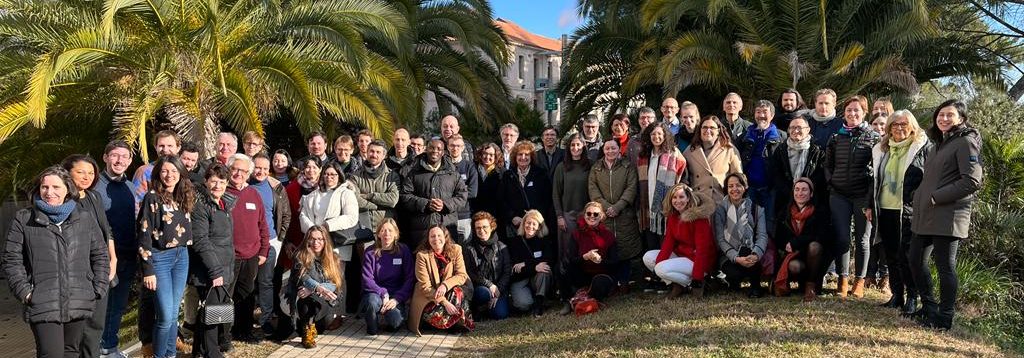
AgriLoop consortium
Thirty-five academic and private partners from across Europe and China are now working together on the AgriLoop project, which will develop sustainable processes to convert agri-food residues into high-value, eco-friendly products for use in food, feed and bio-based materials.
This new collaboration will find new uses for agri-food residues: currently an underexploited resource for both the European Union and China, accounting for around 50% of harvested crops. Over the next four years, this project will develop sustainable integrated processes in a cascading biorefinery approach to convert agri-food residues (from tomato, soy, straw, potato, brewery, oil, winery and livestock sectors etc) into high-value, eco-friendly products such as plant and microbial proteins, polyesters and other bio-based chemicals for use in food, feed, health and material applications, especially by the agricultural sector. The increase in use will bring significant economic, environmental and societal benefits to the regions involved. AgriLoop will also strengthen European and Chinese cooperation, enabling partners to join forces to increase agricultural sustainability, grow the bioeconomy and tackle climate change and plastic pollution. .
To officially launch the project and kick start the collaboration the newly formed consortium recently came together for a three-day meeting at the National Research Institute for Agriculture, Food and Environment in France.
Professor Nathalie Gontard, Director of Research at the National Research Institute for Agriculture, Food and Environment and Coordinator of the project commented:
Here we have a fantastic opportunity for the countries in the European Union and our associated partners in the project to collaborate and strengthen our partnership with China on such an important global issue. There are four exciting years ahead and this kick off meeting has really laid the foundations for a successful start to the project.
Professor Aimin Shi, Research Fellow from the Institute of Food Science and Technology, Chinese Academy of Agricultural Sciences added:
I would echo Professor Gontard’s comments, here in China we are thrilled to be part of such an important and interesting international project which will have real impact across the world.
This project will strengthen European and Chinese cooperation and open up new avenues for flexible, agri-based value chains, enabling the consortium to join forces to increase agricultural sustainability, grow the bioeconomy and tackle climate change and plastic pollution.